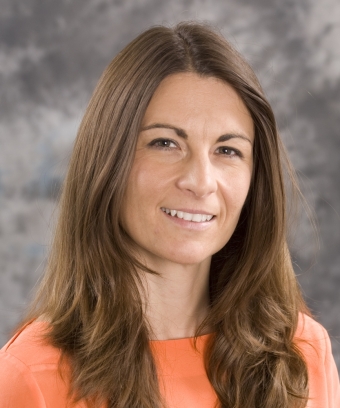
Date:
Location:
Title:
abstract
Active nematics are out-of-equilibrium fluids composed of rod-like subunits, which can generate large-scale, self-driven flows. We examine a microtubule-kinesin-based active nematic confined to two-dimensions, exhibiting chaotic flows with moving topological defects. Applying tools from chaos theory, we investigate self-driven advection and mixing on different length scales. Local fluid stretching is quantified by the Lyapunov exponent.
Global mixing is quantified by the topological entropy, calculated from both defect braiding and curve extension rates. We find excellent agreement between these independent measures of chaos, demonstrating that the extensile stretching between microtubules directly translates into macroscopic braiding of positive defects. Remarkably, increasing extensile activity (via ATP concentration) does not increase the dimensionless topological entropy.
This study represents the first application of chaotic advection to the emerging field of active nematics and the first time that the collective motion of an ensemble of defects has been quantified in a liquid crystal.
bio
Professor Linda S. Hirst received her Ph. D. in Experimental Physics, in December 2001, from the University of Manchester in the UK, where she studied liquid crystal materials. She spent three and a half years as a postdoctoral researcher in the Department of Materials Science at UCSB, working on biomolecular self-assembly. After serving for three years as a faculty member in the Physics Dept at Florida State University, she joined the faculty at UC Merced where she is a Professor of Physics.
Hirst’s research focuses on experimental soft matter physics. Her group investigates how molecular-level organization in soft materials can lead to macroscopic structures and phases in a variety of systems. These include liquid crystal nano-composites, lipid bilayers and biologically-inspired active matter.
Prof Hirst has twice served as the physics graduate chair (2009-13 and 2016-18) and has served on the board of directors for the International Liquid Crystal Society and as member-at-Large for the Group on Soft Matter Physics in the American Physical Society. She is the author the textbook “Fundamentals of Soft Matter Science” and was recently awarded the Hilsum medal by the British Liquid Crystal Society.
Hosted by Cyrus Safinya. Download event flyer.



